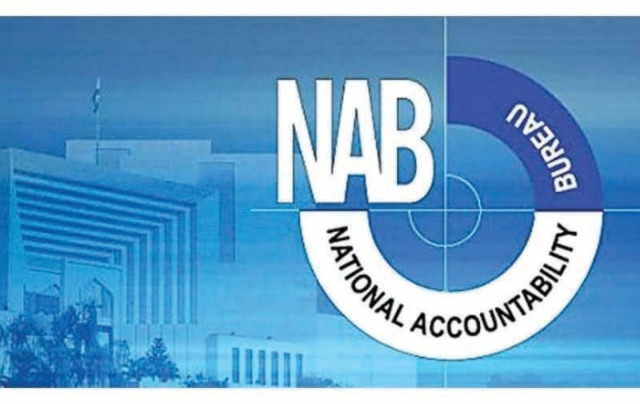Ruling alliance mulls discarding NAB
Newly-stitched alliance is aiming for at least three major constitutional amendments, including abolishing the NAB

The Pakistan Muslim League-Nawaz (PML-N)-led newly-stitched ruling alliance is aiming to go for at least three major constitutional amendments, including abolishing the National Accountability Bureau (NAB), restoring articles 62 and 63 to their original position and empowering local governments, it emerged on Tuesday.
Just days after Prime Minister Shehbaz Sharif took oath and even before finalising the federal cabinet, insiders revealed that the PML-N along with its allies, including Pakistan Peoples Party Parliamentarian (PPPP), Muttahida Qaumi Movement-Pakistan (MQM-P), among others, was already working on these constitutional amendments.
“You can say that these three amendments are on the cards,” a PML-N leader shared at a time when the rigging allegations have made the recently-concluded general elections controversial and the parties sitting on opposition benches are accusing the ruling alliance of stealing their mandate and protesting against it.
Among other things, he, however, refrained from confirming if a move to give an extension to the incumbent Chief Justice of Pakistan (CJP) for three years was also under consideration.
Initially, the PML-N leader said, the party was eying only two amendments; abolishing NAB and changing the wording of Articles 62 and 63 back to the original, saying both were also included in the party’s manifesto as well.
He said that PPPP already agreed with these two proposals and it was PML-N, which has been delaying it.
The third has recently been included, he maintained, after the PML-N and MQM-P inked a formal agreement to empower local government, saying this was the reason MQM-P decided to sit on treasury benches.
The MQM-P-proposed amendment wants the federation to establish local governments under Article 140-A. In addition, it wants to introduce Articles 140-B (which deals with the powers and functions of the local governments) and Article 140-C (which relates to the finances of the local governments).
Background discussion with PML-N leaders revealed that the addition of reserved seats has emboldened the ruling alliance to take practical steps as a two-thirds majority is required for the constitutional amendments.
Currently, they said, 225 (67%) out of the 336-member National Assembly was needed for making a constitutional amendment, saying PM Shehbaz’s election already ensured that the coalition had support from 201 members.
The rest can come from the additional reserve seats being distributed among the parties, they said, after the Election Commission of Pakistan (ECP) ruled that the Sunni Ittehad Council — the new home of PTI-affiliated lawmakers of Pakistan Tehreek-e-Insaf (PTI) — was not eligible for the reserve seats and the same would be distributed among other political parties based on the proportional representation formula.
Expectedly, they said, the remaining seats would put the ruling parties in a position where they can go for the constitutional amendments.
On one hand, they noted, the PML-N-led government is gearing up for the constitutional amendments while, on the other hand, the PTI-SIC lawmakers are spending energy on protests that wouldn’t cause any hindrance in legislation when the ruling alliance’s required number is complete in NA.
In January, the three-time former premier Nawaz Sharif while launching the manifesto had declared in unequivocal terms that if the PML-N secures victory in the Feb 8 general elections, NAB will be abolished.
Back in 2018, while grappling with three corruption references, Nawaz had expressed regret that he could not eliminate what he termed “draconian NAB laws” during his tenure. “Abolish NAB,” the PML-N’s 51-page manifesto stated. “[It will] strengthen existing anti-corruption institutions and agencies.”
In addition to the NAB abolition pledge, Nawaz, who faced disqualification under articles 62 and 63 and rallied behind the slogan of 'Vote Ko Izzat Do' (Respect the Vote), had vowed in the manifesto to establish the unequivocal supremacy of parliament.
To do that, the party leader said, Articles 62 and 63 would be amended or restored to their original position of 1973, while Article 63-A would also be clarified.
Under Article 62(1)(f) of the Constitution of Pakistan, a person cannot be qualified as a member of the national or provincial legislatures if he is not ‘Sadiq and Ameen’ – truthful and trustworthy.
Reportedly, on March 2, 1985, General Ziaul Haq had issued the Revival of Constitution of 1973 Order (RCO), changing 67 clauses and sections of 280 articles of the Constitution.
It represented the largest number of changes in a single stroke in the history of Pakistan. Some of the reworked language was clauses in Article 62, which now required members of parliament to meet the conditions of being Sadiq and Ameen – two Arabic terms which were never clearly defined in English, the language of the Constitution.
The party’s 2024 to 2029 manifesto also promises judges’ accountability; time-bound disposal of complaints against judges of superior courts; live telecast of important matters under adjudication before the superior courts, including the proceedings of the Supreme Judicial Council; and vowed that an inclusive procedure for appointment of superior court judges on merit would be adopted.



















COMMENTS
Comments are moderated and generally will be posted if they are on-topic and not abusive.
For more information, please see our Comments FAQ